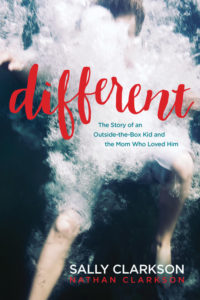I'm not a fan of scary stories. When I was younger, if I happened by chance to see a horror movie at a friend's house, it would stay in my thoughts, terrorizing me, for months (sometimes years). I have never been one to seek ...
Stories We Shared
Cheaper By The Dozen- A Book Review
“Dad himself used to tell a story about one time when Mother went off to fill a lecture engagement and left him in charge at home. When Mother returned, she asked him if everything had run smoothly. ‘Didn't have any trouble except with that one over there,' he replied. 'But a spanking brought him into line.' Mother could handle any crisis without losing her composure. ‘That's not one of ours, dear,' she said. 'He belongs next door.’”
I grew up in an average sized family. I had a sister who was three years my junior and then, when I was fourteen, I gained an even younger stepsister. Although we had our share of sibling spats, our house of three girls was generally quiet, orderly, and…well, average. I didn’t know anyone with a particularly large family and had no experience with the nuances of large family dynamics. As a result, when I picked up the book Cheaper By The Dozen by Frank Gilbreth, Jr and Ernestine Gilbreth Carey, I was particularly eager to take a peek at their account of large family life. What I did not expect, however, was to find a hilarious and beautiful tribute to a unique father and husband, and a nostalgic picture of typical turn-of-the-century life for an atypical American family.
Frank Gilbreth and his wife Lillie were world-famous efficiency experts in pre-WWI America--who also happened to have a dozen children. They were an unusual family, not just because of their size, but because of the career and vibrant personality of their patriarch. In this delightful memoir, two of the twelve children recount in various tales the ways in which their father worked out his theories and practices regarding motion study and education in their bustling home. A fascinating and fun read, Cheaper By The Dozen paints a picture of what it was like to grow up with Frank Gilbreth as a father.
Despite the fact that he believed that a family could (and should) run like an efficient factory, Frank Gilbreth doted on his children and filled the home with warmth and love. The book chronicles how he was as quick to pull out a surprise present from his pocket as he was to administer discipline or correction for wrong doing. A jokester, he filled the house with laughter and antics that had the Gilbreth family (and the reader) in stitches. His pioneer work in the field of motion study was fascinating, and he carried out experiments and documented theories with his children in ways that were equally gripping and hilarious. A staunch proponent of education, Gilbreth took every opportunity to act as teacher and mentor to his twelve children, from painting Morse code and astronomical diagrams on the walls, to performing quick math drills and tricks at the dinner table.
Although the book focuses primarily on the father, his love for his wife and children is portrayed in a way that paints a beautiful portrait of family life. Despite occasional squabbles, the siblings genuinely love each other and defend one another. The parents are generally honored and respected. Extended family is cherished and revered. And Mr. and Mrs. Gilbreth model a marriage that is loving, cooperative, complementary, and traditional. In other words, this book is a quiet and effective defense of the traditional family. It is also staunchly pro-life. Gilbreth’s love for all of his children, born and yet unborn, is highlighted, as is his family’s adoration of children in every season of life. From cooing at his newborn to chaperoning his teenaged daughters’ dates, Gilbreth’s devotion to and concern for all of his children is heartwarming.
Because the book takes place in the early Twentieth Century, many of the nuances of life during that time are chronicled, including childhood illnesses, technological advances, and societal customs, including discipline. Some of Frank Gilbreth’s parenting choices and disciplinary practices may be offensive to some readers; corporal punishment is used, but there is absolutely no instances of abuse implied. Also, although this is a generally wholesome and clean book, there are a few swear words, including a couple of instances in which the Lord’s name is taken in vain. Cautious parents may want to be aware of the fact that there is a hilarious chapter in which the parents play a joke on a woman advocating for birth control. Further, Mr Gilbreth is not religious and talks somewhat insultingly about preachers in a particular context.
Despite these few mildly objectionable instances, I found Cheaper By The Dozen to be a delightful, hilarious, nostalgic, inspiring, and family-oriented novel that is perfect for a family read aloud.
A note about the movies: the original 1950 movie with Clifton Webb and Myrna Loy is generally faithful to the book. The 2003 version with Steve Martin and Bonnie Hunt has absolutely no resemblance to the book or original movie.
WWII Books for Children
A hushed, contemplative picture book based on an episode from the author’s own childhood. What happens when a father returns from war, a stranger to his child? Gentle, honest, a tale that examines one of the difficult aspects of war with real tenderness.
The Story of the World's Best Luck
In the beginning, God. A good God made the world, and He called it good. This is how the Story begins. Man and woman were made to be God’s image-bearers, the ones who would rule over creation and care for it in God’s name and as God would, the ones who would most fully reflect Him. They were to multiply, producing other image-bearers who would reflect and reveal God, and in doing so would cover the earth with His glory.
Different Discussion Questions | Chapters 11 to 13
Today we wrap up our discussion questions for Different. Is your Mom Heart group enjoying the new relationships and levels of sharing that this incredibly vulnerable book has brought about? I pray that the Lord has blessed your conversations and that mothers are being drawn to Him, especially in their deepest, lonely struggles with different children. Click here to find discussion questions for previous chapters. Chapter 11: Naming the EnemyAt the beginning of chapter 11, Nathan shares his struggles with accepting himself as God created him, with his differences and challenges, and at the same time, seeking to grow. “And so I justified my unhealthy behavior and anesthetized the pain I felt with escapes and distractions that made me feel better temporarily but hurt me more in the long run. My so-called self-acceptance was mostly just a justification to remain in my own darkness.” Page 168This is a struggle most Christians face. How do you balance self-acceptance with personal growth? What escapes and distractions are temptations for you?How do you encourage yourself to grow instead of remaining complacent or stagnant?
Chapter 11: Naming the EnemyAt the beginning of chapter 11, Nathan shares his struggles with accepting himself as God created him, with his differences and challenges, and at the same time, seeking to grow. “And so I justified my unhealthy behavior and anesthetized the pain I felt with escapes and distractions that made me feel better temporarily but hurt me more in the long run. My so-called self-acceptance was mostly just a justification to remain in my own darkness.” Page 168This is a struggle most Christians face. How do you balance self-acceptance with personal growth? What escapes and distractions are temptations for you?How do you encourage yourself to grow instead of remaining complacent or stagnant?
The righteous man will flourish like the palm tree,He will grow like a cedar in Lebanon. Planted in the house of the Lord,They will flourish in the courts of our God. They will still yield fruit in old age;They shall be full of sap and very green, To declare that the Lord is upright; He is my rock, and there is no unrighteousness in Him. Psalm 92:12-15
The next section covers some of Nathan and Sally’s journey into counseling and medication to help Nathan’s brain operate more peacefully. This can be a very sensitive subject for many families. Please be gentle and refrain from offering advice in your groups. Instead, pray for and with the women and point them to Jesus and His Word.On page 177, Sally shares, “Nathan’s dreams were so big, so expensive. He wanted to be an actor, a screenwriter, to make Hollywood films that reflected the Christian worldview. And his differences could be so daunting. I had trouble imagining his prayers being answered in the way he expected. But Nathan was my son. So I prayed for his dreams because he wanted us to. I prayed because he kept on praying. As the years went by, I would be reminded again and again that the Lord hears not just my prayers, but also the fervent prayers and hopes of my children.”Do you ever feel like you need to discourage your children’s dreams? How can you encourage them instead? Chapter 12: Beyond “Why Me?”“The truth is, we live in a deeply fractured world, and we don’t always have a choice about being broken. But we do have a choice about where we let our brokenness lead us. We can follow it into escape or addiction. But we can also follow it straight to God. To the One who knows us inside and out- with all our mistakes, broken parts, insecurities, and battles- and who still loves us. To the One who can not only handle our anger and our frustration and our questions, but can use them to transform us. As we practice running back to our Creator in times of trial, we find ourselves in the place where healing begins.” Nathan, page 186.We all have broken places and have lived through broken life circumstances. Where has your brokenness led you? Share a time you saw God work through your brokenness. When did God work through Biblical characters’ brokenness? (For example, see Psalm 51, David’s prayer for forgiveness after his sin with Bathsheba.)Page 193, “God had ordained that I would be the mama of these unique children, tasked with shepherding them through life and teaching them what unconditional love meant. It was my stewardship to parent my sweet little ones with all the faith and joy I had chosen as my foundation for the other areas of my life.”Sometimes in mothering, we don’t choose the faith and joy that we choose in other areas of our lives such as church ministry, careers, and hobbies. What is one thing you can do to bring more faith and joy to your parenting?On page 194, Sally says, “If I had not been given [my children] to love, I might never have learned that it’s possible to be content even when life feels out of control. That as long as we assume we cannot be happy until we can control all the circumstances of our lives, we will continue to be unhappy. That freedom can be found in surrendering to God’s transcendent purposes, which are infinitely greater than our finite understanding.”How have you found contentment in difficult circumstances or relationships that are out of your control?
Chapter 12: Beyond “Why Me?”“The truth is, we live in a deeply fractured world, and we don’t always have a choice about being broken. But we do have a choice about where we let our brokenness lead us. We can follow it into escape or addiction. But we can also follow it straight to God. To the One who knows us inside and out- with all our mistakes, broken parts, insecurities, and battles- and who still loves us. To the One who can not only handle our anger and our frustration and our questions, but can use them to transform us. As we practice running back to our Creator in times of trial, we find ourselves in the place where healing begins.” Nathan, page 186.We all have broken places and have lived through broken life circumstances. Where has your brokenness led you? Share a time you saw God work through your brokenness. When did God work through Biblical characters’ brokenness? (For example, see Psalm 51, David’s prayer for forgiveness after his sin with Bathsheba.)Page 193, “God had ordained that I would be the mama of these unique children, tasked with shepherding them through life and teaching them what unconditional love meant. It was my stewardship to parent my sweet little ones with all the faith and joy I had chosen as my foundation for the other areas of my life.”Sometimes in mothering, we don’t choose the faith and joy that we choose in other areas of our lives such as church ministry, careers, and hobbies. What is one thing you can do to bring more faith and joy to your parenting?On page 194, Sally says, “If I had not been given [my children] to love, I might never have learned that it’s possible to be content even when life feels out of control. That as long as we assume we cannot be happy until we can control all the circumstances of our lives, we will continue to be unhappy. That freedom can be found in surrendering to God’s transcendent purposes, which are infinitely greater than our finite understanding.”How have you found contentment in difficult circumstances or relationships that are out of your control? Chapter 13: Watch Me Fly!This chapter is a wonderful story of God’s faithfulness to Nathan and Sally. Have someone read pages 214 and 215 aloud. Spend some time encouraging the mothers in your group about how they can be proud of themselves and the choices they have made to continue to love their children, especially the different and/or difficult ones. Share stories of how God is working even now.We pray that God has used this book to encourage your heart toward your children as well at the mothers around you.Different Chapters 11 to 13 printable
Chapter 13: Watch Me Fly!This chapter is a wonderful story of God’s faithfulness to Nathan and Sally. Have someone read pages 214 and 215 aloud. Spend some time encouraging the mothers in your group about how they can be proud of themselves and the choices they have made to continue to love their children, especially the different and/or difficult ones. Share stories of how God is working even now.We pray that God has used this book to encourage your heart toward your children as well at the mothers around you.Different Chapters 11 to 13 printable
A Wholehearted Booklist
One of the requests we get most frequently here at Storyformed is for book lists. We love to give recommendations and, while we are always working behind the scenes to curate the very best books for you and your family, today we thought that we would point you to a list that our lovely founder, Sarah Clarkson, compiled.
Planting Shade Trees Through Story
Different Discussion Questions | Chapters 9 and 10
Has your group been reading through Different together? It might not be an easy journey to take, but one that can bring encouragement to the mothers around you. Make your group a safe place for women to share their parenting challenges in a way they’ve never been able to share before. Click here to find the previous discussion questions. Chapter 9: A Place to BelongOn page 133, Nathan shares, “But no matter where I went or what I did, I always knew that as soon as I opened my front door I would be welcomed home. My family had created a place where I was not only allowed but encouraged to be Nathan, the person God made me to be. I was not asked to put on a safer, more acceptable personality. I was not asked to be someone I was not. I was simply allowed to be who I was – as I learned to accept and love the ones around me for who they were. Home was truly a safe place put together by my parents and brought to life by my family, who all knew me so well and actually loved me for it.”What is challenging for you in providing a safe home for your children where they can be themselves?Page 135, “The belief that God is good and that He loves us is our foundation to stand on in times of deep heart and soul testing. But faith does not take away the pain and anguish; it does not diminish the unforgettable years of heartbreak and despair.”What life circumstances and Bible verses remind you that God is good?Sally states on page 140, “As long as we believe we can control life by trying, controlling, manipulating, putting pressure on life, we will live in constant exhaustion.”What habits do you have or desire to cultivate that remind you that God is in control and not you?
Chapter 9: A Place to BelongOn page 133, Nathan shares, “But no matter where I went or what I did, I always knew that as soon as I opened my front door I would be welcomed home. My family had created a place where I was not only allowed but encouraged to be Nathan, the person God made me to be. I was not asked to put on a safer, more acceptable personality. I was not asked to be someone I was not. I was simply allowed to be who I was – as I learned to accept and love the ones around me for who they were. Home was truly a safe place put together by my parents and brought to life by my family, who all knew me so well and actually loved me for it.”What is challenging for you in providing a safe home for your children where they can be themselves?Page 135, “The belief that God is good and that He loves us is our foundation to stand on in times of deep heart and soul testing. But faith does not take away the pain and anguish; it does not diminish the unforgettable years of heartbreak and despair.”What life circumstances and Bible verses remind you that God is good?Sally states on page 140, “As long as we believe we can control life by trying, controlling, manipulating, putting pressure on life, we will live in constant exhaustion.”What habits do you have or desire to cultivate that remind you that God is in control and not you? On pages 142 and 143, Sally discusses taking breaks and cultivating friendships as ways to take care of ourselves during the marathon journey of mothering. How can you incorporate small bits of regular self-care into your life?Chapter 10: Voices of Darkness, Voices of TruthPage 155, “The amazing thing about having a loving Creator who freely offers grace, forgiveness, and redemption is that no matter how loud the voices of darkness scream, the Voice of light will always be louder. But not if we don’t choose it. Yes, who we listen to is a choice- maybe not always a conscious one, but a choice all the same.”What voices are you tempted to listen to? Your own? Culture? The internet? Satan? How will you take action to listen to God’s voice?
On pages 142 and 143, Sally discusses taking breaks and cultivating friendships as ways to take care of ourselves during the marathon journey of mothering. How can you incorporate small bits of regular self-care into your life?Chapter 10: Voices of Darkness, Voices of TruthPage 155, “The amazing thing about having a loving Creator who freely offers grace, forgiveness, and redemption is that no matter how loud the voices of darkness scream, the Voice of light will always be louder. But not if we don’t choose it. Yes, who we listen to is a choice- maybe not always a conscious one, but a choice all the same.”What voices are you tempted to listen to? Your own? Culture? The internet? Satan? How will you take action to listen to God’s voice? Page 158, “I made a deliberate choice to put aside many of my own needs and time commitments during this time in order to involve all our kids deeply in this ministry of hospitality.”Parenting will involve continual sacrifices of our time and needs. What have you chosen to lay down for this season in order to be fully available? (This does not mean neglecting the self-care that keeps you healthy.)
Page 158, “I made a deliberate choice to put aside many of my own needs and time commitments during this time in order to involve all our kids deeply in this ministry of hospitality.”Parenting will involve continual sacrifices of our time and needs. What have you chosen to lay down for this season in order to be fully available? (This does not mean neglecting the self-care that keeps you healthy.) On page 160, Sally discusses teenagers and the need to allow them the freedom to make choices. For those of you with pre-teen and teenage children, how are you loosening the reins of control in favor of nudging and influencing?Take some time to pray through the issues discussed and anything that the women want to change in their daily lives.Different Chapters 9 and 10 printable pdf
On page 160, Sally discusses teenagers and the need to allow them the freedom to make choices. For those of you with pre-teen and teenage children, how are you loosening the reins of control in favor of nudging and influencing?Take some time to pray through the issues discussed and anything that the women want to change in their daily lives.Different Chapters 9 and 10 printable pdf
10 Favorite Picture Books
The Mysterious Power of Fairy Stories
Different Discussion Questions | Chapters 7 and 8
We are making our way through Different! Have you connected in a new way with any mothers around you? We love to hear how God is using this book to reach parents. Click here to find the previous posts about Different.
Rembrandt's Jacob Wrestling with the Angel (public domain)
Chapter 7: Wrestling GodThis chapter talks about how Nathan had doubts and feelings of discouragement and anger that he needed to express to the Lord. From page 99, “”God loves it when you wrestle Him, Nathan,” she said. “Because wrestling is a full-contact sport, and God loves it when you are in contact with Him. Maybe He has a bigger view of your life and is willing to do more than you can presently see.””How do you react when your children question God or faith?Page 103, “So many years later, when each of my children came to me with deep doubts, I understood. Their pathway was one I had walked, and I knew their need for compassion, sympathy, and support. So I would put aside the screaming demands of my own busyness, listen to their words, and seek to comprehend their soul issues.”How do you set aside your own “screaming demands” to listen to your children’s doubts and needs? How can you remind yourself that life is short and the relationships you build are the most important thing?As mothers, we sometimes have the same doubts and struggles as our children. Consider in your mind, who do you go to with your own doubts and insecurities? Who is one person with whom you can initiate a more intimate relationship? Share some ideas for building a closer one-on-one relationship with a woman around you. Chapter 8: Different DrummingOn page 106, Nathan describes how mental illness and personality traits are not something we choose. They are not able to be turned off and on. We and our children all have things like this even if they aren’t as difficult as the issues Nathan struggles with.What personality traits or thought patterns are like this for you? Anxiety, depression, insecurity? Some of these things are extremely deep rooted and aren’t easily walked through. Where do you find yourself getting stuck? How do you need the Lord to change your perspective?One page 113, Sally shares how “Many times [she] just felt a need for someone to listen, to sympathize, to understand and to pray.”We all need both: someone to listen to us and someone who can share openly with us. Often, these are found in two different people. How can you cultivate and choose these types of relationships? Are you committed to listening to someone? Have you reached out and asked someone to listen to you? The book Safe People by Cloud and Thompson has helpful guidelines on healthy communication.
Chapter 8: Different DrummingOn page 106, Nathan describes how mental illness and personality traits are not something we choose. They are not able to be turned off and on. We and our children all have things like this even if they aren’t as difficult as the issues Nathan struggles with.What personality traits or thought patterns are like this for you? Anxiety, depression, insecurity? Some of these things are extremely deep rooted and aren’t easily walked through. Where do you find yourself getting stuck? How do you need the Lord to change your perspective?One page 113, Sally shares how “Many times [she] just felt a need for someone to listen, to sympathize, to understand and to pray.”We all need both: someone to listen to us and someone who can share openly with us. Often, these are found in two different people. How can you cultivate and choose these types of relationships? Are you committed to listening to someone? Have you reached out and asked someone to listen to you? The book Safe People by Cloud and Thompson has helpful guidelines on healthy communication. Page 117, “Part of my learning to deal with him was to accept the fact that (1) I would never totally understand him or know how to respond to him, but that (2) that was okay! Carrying guilt for being unable to anticipate all his needs would just add more burden to our lives. An emotional backpack loaded with feelings of inadequacy, guilt, and failure can perilously slow us down or even stop progress entirely.”How can you let the Lord carry your emotional backpack in order to be okay with never getting it exactly right or having all the answers? Do you need to ask for help to unpack your emotional backpack? The freedom of walking lightly through life is worth getting help.
Page 117, “Part of my learning to deal with him was to accept the fact that (1) I would never totally understand him or know how to respond to him, but that (2) that was okay! Carrying guilt for being unable to anticipate all his needs would just add more burden to our lives. An emotional backpack loaded with feelings of inadequacy, guilt, and failure can perilously slow us down or even stop progress entirely.”How can you let the Lord carry your emotional backpack in order to be okay with never getting it exactly right or having all the answers? Do you need to ask for help to unpack your emotional backpack? The freedom of walking lightly through life is worth getting help.
Sally and Nathan
On page 120, Sally shares how she and Clay came to the understanding that Nathan “was an essential part of the particular story that God wanted us to live out, the place we could best glorify Him…We had to accept Nathan with God’s unconditional love- just as he was.”What issues or circumstances in your life are you struggling to accept as part of God’s story for you?On page 127, Sally gives a list of decisions and actions she had to take in order to effectively reach Nathan and disciple him along the way. What do you need to do or make peace with in order to help your children thrive?Wrap up your meeting by taking some time to pray about some of the things you discussed with your group.Different Chapters 7 and 8 printable
The Green Ember Review and a Giveaway!
Stories To Inspire Motherhood
I collect old books. Or, I should be more honest and say that I hoard old books. One of my favorite pastimes is waffling through old, dusty, second-hand book stores (the more stacks piled up to the ceiling, the better), searching for those perfect hardback editions of my all-time favorite stories. ...
Different Discussion Questions | Chapters 5 and 6
Have you been following along with our series on Different? Using this book in a Mom Heart group can be tricky because it touches such deep parts of our mother hearts, but it is also an opportunity for intimacy and close friendships to blossom as we hear the hurts and fears of those around us. Here are all the posts with discussion questions for Different. Chapter 5: A Heart Like SupermanPage 67 "Stories put me in the context of something bigger than myself and help me to see my day-to-day struggles as enemies to overcome for the sake of a greater purpose. Whether as a teenager dealing with mental illness or a young adult struggling with the anxiety of living alone in a big city, I have found these tales help remind me that I myself am living a story. That every little experience or decision I make affects the meaning and the outcome. Which means I have a choice in what kind of story my life will tell."
Chapter 5: A Heart Like SupermanPage 67 "Stories put me in the context of something bigger than myself and help me to see my day-to-day struggles as enemies to overcome for the sake of a greater purpose. Whether as a teenager dealing with mental illness or a young adult struggling with the anxiety of living alone in a big city, I have found these tales help remind me that I myself am living a story. That every little experience or decision I make affects the meaning and the outcome. Which means I have a choice in what kind of story my life will tell." What stories have helped you put yourself in the context of something bigger?What stories have helped your children in this way? If you need ideas, Caught Up in a Story and Read for the Heart, both by Sarah Clarkson, are excellent resources. Storyformed.com is also an amazing place to gather life-giving suggestions.
What stories have helped you put yourself in the context of something bigger?What stories have helped your children in this way? If you need ideas, Caught Up in a Story and Read for the Heart, both by Sarah Clarkson, are excellent resources. Storyformed.com is also an amazing place to gather life-giving suggestions. Page 78 "But when I put myself in Nathan's shoes, I realized that my constant correction could easily be a source of frustration, insecurity, and anger in my already-fragile child. That constant feeling of just not measuring up can build a lifelong legacy of insecurity and even despair. Feeling like a disappointment on a regular basis can actually shape the brain patterns of a growing child. Failure and helplessness can become self-fulfilling prophecies."How do you decide which issues need correction and which you can overlook? When do you tend to over-correct your children?On pages 74- 79, Sally writes about her determination to give Nathan positive affirmations, modeled after Jesus' words with his disciples and others around him.Ask someone to read aloud the affirmations of Jesus on page 75. What are some positive affirmations that you would like to say more often to your children?What's preventing you from saying positive things?Chapter 6: The Grand Performance
Page 78 "But when I put myself in Nathan's shoes, I realized that my constant correction could easily be a source of frustration, insecurity, and anger in my already-fragile child. That constant feeling of just not measuring up can build a lifelong legacy of insecurity and even despair. Feeling like a disappointment on a regular basis can actually shape the brain patterns of a growing child. Failure and helplessness can become self-fulfilling prophecies."How do you decide which issues need correction and which you can overlook? When do you tend to over-correct your children?On pages 74- 79, Sally writes about her determination to give Nathan positive affirmations, modeled after Jesus' words with his disciples and others around him.Ask someone to read aloud the affirmations of Jesus on page 75. What are some positive affirmations that you would like to say more often to your children?What's preventing you from saying positive things?Chapter 6: The Grand Performance At the beginning of chapter 6, Nathan remembers an experience of viewing God's glory in creation that has stayed with him to this day. On page 84 he says, "There are moments in life so beautiful that everything in us wants to praise the Creator. Maybe it's stars- or an ocean view, a magnificent sunset, the birth of a child. It's important to put ourselves in places and situations that bring us those moments- and to recognize them for what they are."Share about a time you had an experience or moment like this.Page 90 "God was the first artist, after all, crafting masterpieces that would be discovered throughout all eternity. Exposing out children to His handiwork as often as possible was a priority for Clay and me. Placing our children (and ourselves) in the face of this creator God seemed to increase their sense of delight in Him and left a taste of pleasure in their souls. It also provided respite and relief from our stressful daily lives."
At the beginning of chapter 6, Nathan remembers an experience of viewing God's glory in creation that has stayed with him to this day. On page 84 he says, "There are moments in life so beautiful that everything in us wants to praise the Creator. Maybe it's stars- or an ocean view, a magnificent sunset, the birth of a child. It's important to put ourselves in places and situations that bring us those moments- and to recognize them for what they are."Share about a time you had an experience or moment like this.Page 90 "God was the first artist, after all, crafting masterpieces that would be discovered throughout all eternity. Exposing out children to His handiwork as often as possible was a priority for Clay and me. Placing our children (and ourselves) in the face of this creator God seemed to increase their sense of delight in Him and left a taste of pleasure in their souls. It also provided respite and relief from our stressful daily lives." How do you make time to enjoy the outdoors with your children?Page 90 continued, "So much of our life as parents is focused on our children's external behavior: manners, speech, work ethic, accomplishments in school, respect. And all that training is vital for their future. But how wonderful it is to make time together when no outward performance is required- only play, love, fun, pleasure, and rest where we can all feel okay about making a mess."If it's difficult for you to turn off the need to "check all the boxes" in your day or in your child's life, how can you take steps toward allowing your children time to just be when no performance is required?
How do you make time to enjoy the outdoors with your children?Page 90 continued, "So much of our life as parents is focused on our children's external behavior: manners, speech, work ethic, accomplishments in school, respect. And all that training is vital for their future. But how wonderful it is to make time together when no outward performance is required- only play, love, fun, pleasure, and rest where we can all feel okay about making a mess."If it's difficult for you to turn off the need to "check all the boxes" in your day or in your child's life, how can you take steps toward allowing your children time to just be when no performance is required? On page 91, Sally shares some of the ways she incorporated creation into the lives of her children. Spend a few minutes brainstorming local places that you and your group members could explore with your children.Different Chapters 5 and 6 printableWe'd love to hear how this book is impacting you and the women in your groups. Is it challenging to discuss sensitive topics or are your finding new friendships and intimacy with the women in your group?
On page 91, Sally shares some of the ways she incorporated creation into the lives of her children. Spend a few minutes brainstorming local places that you and your group members could explore with your children.Different Chapters 5 and 6 printableWe'd love to hear how this book is impacting you and the women in your groups. Is it challenging to discuss sensitive topics or are your finding new friendships and intimacy with the women in your group?
How To Choose A Great Read-Aloud Book
Your Love is Irreplaceable
The love of a mother in God's divine design is an irreplaceable influence on a child's heart, dreams, self-image, and potential.
You Have to Be Brave to Be an Artist
I’m sitting alone-- which is quite rare-- listening to peaceful classical music in the background, delighting in the culmination of Henry and the Chalk Dragon by Jennifer Trafton.
But I'm Not a Teacher
Are you afraid to read a book in your Mom Heart group that doesn't come with discussion questions? It's not as difficult as you might think.
"I'm feeling called by God to lead a group but I'm not a teacher.""I've never been trained to lead women's ministry.""I'm an introvert."
Have you ever said anything like these to yourself? Did you know that you can start a Mom Heart group without being a teacher? Mom Heart groups gather for the purpose of restoring moms’ hearts to God’s heart for motherhood. When you gather a small number of women together for this purpose, you just need to be willing to initiate and then facilitate a conversation. The goal is to get the women talking to each other and to explore ideas and scripture together. Here are some tips in writing questions to generate discussion.First of all, you need to become thoroughly familiar with the material. Read the chapter once, twice, even three times to internalize and understand what it says. (This is for both scripture and other books.)As you are reading, mark the passages that jump out at you or that the Lord impresses on you as being for your group. Make notes in the margin if something occurs to you.
Here are some tips in writing questions to generate discussion.First of all, you need to become thoroughly familiar with the material. Read the chapter once, twice, even three times to internalize and understand what it says. (This is for both scripture and other books.)As you are reading, mark the passages that jump out at you or that the Lord impresses on you as being for your group. Make notes in the margin if something occurs to you. Once you are familiar with the chapter and you've marked a few sentences or passages that stood out to you, begin to form them into questions. Take the passage and turn it into a question that causes women to think or apply it to themselves.For example, in this recent post, you can read a passage that struck me and then read the question that I wrote merely by rephrasing the sentence into a question that can be discussed by the group.Here's another example from page 26 of Different. This passage jumped out as meaningful so I marked it on my first read-through. After a second read-through, it still seemed like something that would apply to the women in my group.Here's the passage: "But none of these qualities were practical or effective in responding to this one who needed my slowness and my attention in the midst of my busyness."Here's the question I wrote down and asked during my group: "Who needs your slowness and attention? Are you willing to give it?"Can you see how I took the passage and just rephrased it into a question?
Once you are familiar with the chapter and you've marked a few sentences or passages that stood out to you, begin to form them into questions. Take the passage and turn it into a question that causes women to think or apply it to themselves.For example, in this recent post, you can read a passage that struck me and then read the question that I wrote merely by rephrasing the sentence into a question that can be discussed by the group.Here's another example from page 26 of Different. This passage jumped out as meaningful so I marked it on my first read-through. After a second read-through, it still seemed like something that would apply to the women in my group.Here's the passage: "But none of these qualities were practical or effective in responding to this one who needed my slowness and my attention in the midst of my busyness."Here's the question I wrote down and asked during my group: "Who needs your slowness and attention? Are you willing to give it?"Can you see how I took the passage and just rephrased it into a question? Here's another example from page 67.The passage: "Will I choose to be a victim of my circumstances, using my differences and difficulties as excuses for why I failed to do great things? Or will I decide to view my differences as superpowers that can enable me to live better and live out a story worth telling?"The question: "When have you chosen to be a victim of your circumstances? How did you make a choice to rise above the problems and move forward regardless?" <----- notice that none of these questions are yes/no questions. I could have asked, "Have you ever chosen to be a victim of your circumstances?" That only generates yes/no answers, it doesn't elicit discussion. Always double check your questions after they are written and make sure they can't be answered with a simple yes or no.Here are some general questions that you can use to apply to many different topics or thoughts within a chapter.-How will you implement this in your home?-What feelings does this stir up in you?-How has God used circumstances such as these to bring growth in your life?-What is one thing you can try to apply this week?Leading a Mom Heart group might feel intimidating, but it doesn't have to be complicated or scary. God will reveal which passages from a book or scripture are those that apply to your group. Trust Him to bring thoughts to mind as you prepare before hand.What is keeping you from jumping in to lead a group? Are you feeling called but not qualified? So were the disciples and just look how God used them! You can do it. We are here to support you and answer your questions. If God calls you, He will provide what you need.
Here's another example from page 67.The passage: "Will I choose to be a victim of my circumstances, using my differences and difficulties as excuses for why I failed to do great things? Or will I decide to view my differences as superpowers that can enable me to live better and live out a story worth telling?"The question: "When have you chosen to be a victim of your circumstances? How did you make a choice to rise above the problems and move forward regardless?" <----- notice that none of these questions are yes/no questions. I could have asked, "Have you ever chosen to be a victim of your circumstances?" That only generates yes/no answers, it doesn't elicit discussion. Always double check your questions after they are written and make sure they can't be answered with a simple yes or no.Here are some general questions that you can use to apply to many different topics or thoughts within a chapter.-How will you implement this in your home?-What feelings does this stir up in you?-How has God used circumstances such as these to bring growth in your life?-What is one thing you can try to apply this week?Leading a Mom Heart group might feel intimidating, but it doesn't have to be complicated or scary. God will reveal which passages from a book or scripture are those that apply to your group. Trust Him to bring thoughts to mind as you prepare before hand.What is keeping you from jumping in to lead a group? Are you feeling called but not qualified? So were the disciples and just look how God used them! You can do it. We are here to support you and answer your questions. If God calls you, He will provide what you need.



